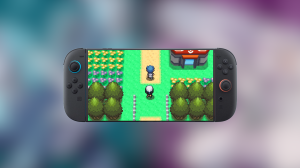Godtear, the new tabletop skirmish game by Steamforged Games, is an easy to learn and accessible game that combines elements of MOBA-style games with classic tabletop skirmish rules. It seems that tabletop skirmish games are growing in popularity lately, with games like Star Wars: Legion and Marvel: Crisis Protocol joining more established games like Warhammer 40K, Malifaux, and Guild Ball in recent years. It takes a lot for a tabletop skirmish to stand out from its peers, which is what makes Godtear so impressive. The new game uses elements of the popular MOBA genre of computer games along with a deceptively simple combat system that focuses on winning “rounds” instead of wiping out your foes. Not only does this keep Godtear games quick, but also prioritizes adaptive strategy over dumping money into armies to stay relevant.
Videos by ComicBook.com
Godtear is set on a world known as the Cradle, a fantasy world in which the gods have died. Their essence has rained down on the cradle in the form of godtears, crystalline meteors that contain fragments of the gods’ power. In order to claim these godtears, powerful champions have formed uneasy alliances to fend off opposing threats and snatch up even more power for themselves. Each champion has its own group of followers that either provide buffs or debuffs to champions or harass enemies with other abilities.
In Godtear, players create warbands of 1 to 3 champions and their followers. There’s no point system or cost to create your warband – each champion has a set number of followers that comes in a set and each warband consists of an equal number of champion. Play is divided into five rounds, with players scoring points by either claiming objectives, knocking out champions, or destroying followers. The person with the most points wins the round and its associated number of victory points, and the first player to five victory points wins.
Each Godtear set comes in one of four colors, which represents the champion’s type. Each champion type has its own specialty and gains bonus points for achieving certain objectives. Slayers score points for knocking out champions, while Guardians score bonus points for having their banner on the field at the end of each round. Players can mix and match their champions as they choose, as there’s no allegiances or factions outside of individual champions and their followers.

Individual rounds are divided into three phases. The first phase is the plot phase, in which both players activate their entire warband at once to move their armies into position or use their abilities to buff and debuff foes. Then comes the clash phase, in which players take turns activating one of their champions or followers, attacking their opponents or trying to thwart their enemy phase. During the end phase, players check the status of their banners and then determines who ultimately wins the round. Each round is worth a different number of points (1 point for the first round, 2 for the second round, 3 for the third round, then 2 for the fourth round, and 1 for the fifth round), and the player who loses the round usually manipulates the field of play to put objective hexes closer to their champions and force their opponent to shift their action.
Combat is determined with the roll of specialized dice and consists of two phases. When a player attacks, they roll a number of dice equal to that attack’s accuracy score. If the dice show a number of symbols equal to or greater than the target’s dodge stat, the attack is a success. When an attack is successful, players then roll a number of dice equal to the attack’s damage stat. The amount of damage equals the number of symbols from the damage roll minus the target’s protection stat. Since dice rolls can be fickle, it’s just as important to claim objective tasks as it is to attack your opponent. Additionally, knocked out champions can recover by spending an action, while knocked out followers can return to the field of play with the use of a recruit action, which gives both sides a fighting chance each round.
There is a lot to like about Godtear, and it feels different from other tabletop skirmish games. The rules are easy to understand, combat plays out quickly, and the miniatures are gorgeous looking and require no assembly. Each champion has its own advantages and disadvantages, and much of the strategy comes from deciding on the right combination of champions. Eight factions are currently available for pre-order, including four that come in one of two different starter sets. A total of 15 different champions have been announced, each of which has its own advantages and disadvantages, and we’ll take a look at some of those sets later this week.
If you’re looking for a tabletop skirmish game that requires minimal set-up time and focuses on fast-paced action, you’ll love Godtear.
Godtear will be released on December 6th.








